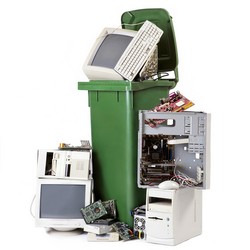Novel methods to improve the recovery, recycling and reuse of rare earth materials
With ever-increasing demand for rare earth metals placing a strain on their limited supply, sources that are not dependent on natural resources must be found. What is more, FPDs found in flat-screen TVs, mobile phones, digital cameras and many other devices are a major electrical waste source. The EU-funded RECYVAL-NANO(opens in new window) project worked to develop an innovative strategy for mechanically recycling FPDs. For the production of nanoparticles, project partners recovered rare earth metals such as indium, yttrium and neodymium from electrical and electronic equipment. They validated the recycling techniques developed through the construction, optimisation and demonstration efforts for mechanical recycling of FPDs and hydrometallurgical metal recovery processes. Focus was also placed on the recycling of such critical metals. The proposed recycling procedure will lead to the extraction of metallo-organic precursors for direct reuse in the production of high added value nanoparticles. Specifically, researchers investigated the recycling process, starting with logistic issues involving waste collection. They optimised mechanical sorting technologies and developed innovative ones for the recovery and concentration of smaller fractions containing indium, yttrium and neodymium. Team members developed solvent extraction routes based on tailored chemical extraction agents that are able to remove 95 % of the key metal in metallo-organic extracted solutions. Then, they used these extracted solutions as precursors in the direct production of advanced nanoparticles. To demonstrate the superior performance application of the produced nanoparticles, the RECYVAL-NANO team applied the materials to several final products. These include indium in transparent conductors, yttrium in light-emitting diodes and neodymium in permanent magnets. RECYVAL-NANO developed a global FPD recycling process by mechanically separating valuable materials, as well as hydrometallurgical processes for refining rare earth metals. Likely impacts include avoiding natural resource overexploitation, benefiting the environment by reducing electronic waste, and lessening the reliance of Member States on resource-rich nations.







